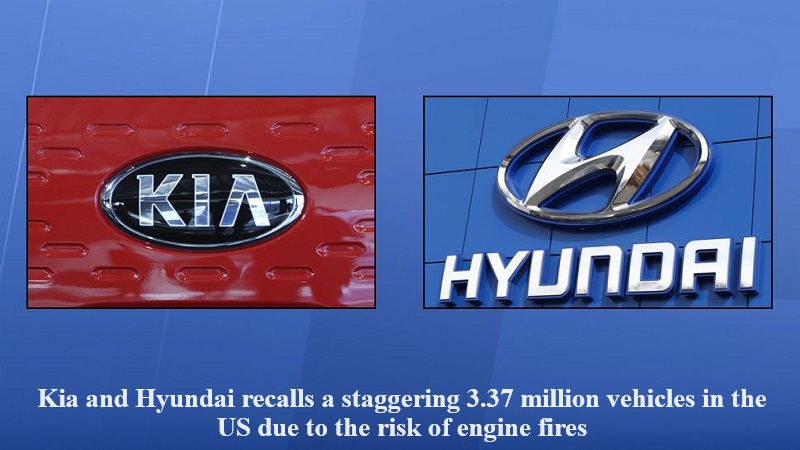
Korean automakers Kia and Hyundai have jointly initiated a massive recall of 3.37 million vehicles in the United States due to the risk of engine fires. This action has prompted vehicle owners to park their cars outside and away from structures until the necessary repairs are completed.
The recall was prompted by concerns raised by the National Highway Traffic Safety Administration (NHTSA) regarding potential safety issues. The primary issue revolves around internal brake fluid leaks, which have the potential to trigger electrical shorts, ultimately leading to potential fires. The NHTSA has endorsed the automakers’ advice, urging vehicle owners to heed their guidance and park their cars outdoors until the essential repairs have been carried out.
Hyundai has reported 21 fires and 21 other thermal issues associated with the recall since 2017, according to the NHTSA. In contrast, Kia has reported at least 10 confirmed incidents of fires and melting. However, neither automaker has reported any accidents, injuries, or deaths related to the recalls.
Kia America’s recall covers a wide range of models, including Borrego, Cadenza, Forte, Sportage, K900, Optima, Soul, Rio, Sorento, and Rondo vehicles. These recalls span various model years from 2010 through 2017. The specific issue pertains to the Hydraulic Electronic Control Unit (HECU), which may experience an electrical short due to brake fluid leaks. This electrical short has the potential to lead to engine compartment fires, whether the vehicle is parked or in motion.
On the other hand, Hyundai’s recall affects approximately 1.64 million vehicles, including models such as Elantra, Genesis Coupe, Sonata Hybrid, Accent, Azera, Veloster, Santa Fe, Equus, Veracruz, Tucson, Tucson Fuel Cell, and Santa Fe Sport. These recalls encompass model years from 2011 through 2015. The issues in Hyundai vehicles are linked to the Anti-Lock Brake System (ABS) module, which may internally leak brake fluid and cause an electrical short, subsequently leading to engine compartment fires when the vehicle is stationary or in operation.
Hyundai plans to advise customers to take their cars to a dealer to have the ABS module fuse replaced. Meanwhile, Kia is still developing a solution for the issue. The automakers will officially announce the recall to owners in November.

Post Your Comments